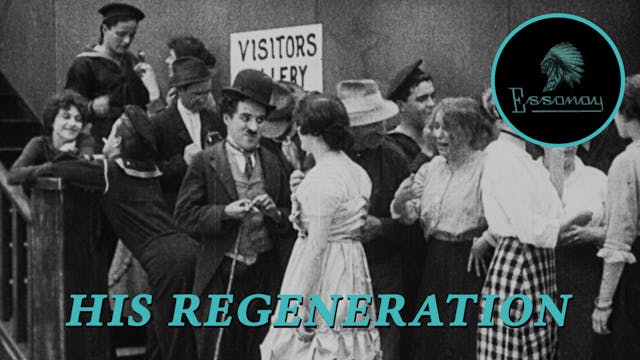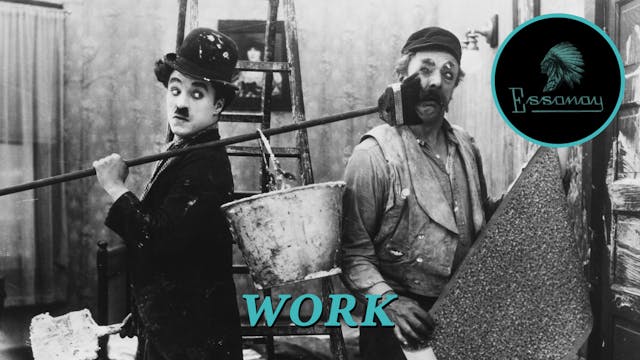The Tramp (1915)
Chaplin's Essanay Comedies (1915)
•
27m
Charlie, a wistful but down-on-his-luck wanderer, saves a farmer’s daughter from some thieving toughs and subsequently stops their attempt to rob the farm. He falls in love with the girl, but upon the appearance of her sweetheart, the little fellow realizes the true situation. He departs, leaving behind a note to the girl that reads: “I thort your kindness was love but it aint cause I seen him. Goodbye.”
This prototypical Chaplin film is important for its superb characterization and construction (a circular journey, beginning and ending on life’s open road) and successfully integrating pathos with comedy. Chaplin drew upon his British music hall training (which employed serious-comic counterpoint) and an in-depth character study of the real-life experiences of an in-depth character study of the real-life experiences of an American hobo whom he interviewed, to introduce a bittersweet ending to this brilliant comedy.
The film’s sad ending – new to film comedy – incorporates Chaplin’s first use of the classic fade-out, in which the Tramp shuffles away alone into the distance, with his back to the camera. THE TRAMP presages the emotional aspects of Chaplin’s mature films and remains the most famous film Chaplin made for Essanay.
Up Next in Chaplin's Essanay Comedies (1915)
-
By the Sea (1915)
The second of two one-reel comedies Chaplin made for Essanay, the film was photographed along Ocean Front Walk and Abbott Kinney Pier in Venice, California, in just one day. It is a film that reverts into the old Keystone pattern (beaches, parks, or motion picture studios as locales for fast-pace...
-
His Regeneration (1915)
Chaplin made a guest appearance in this one-reel G.M. “Broncho Billy” Anderson drama, as the Tramp in the film’s dance-hall sequence. That the main title states
that Anderson was “slightly assisted by Charles Chaplin” suggests that Chaplin may have had a hand in the construction and direction of... -
Work (1915)
The havoc created by incompetent laborers had always been prime slapstick material. In this comedy, Chaplin plays a paperhanger's assistant hired to paper a mansion (the imposing home was the Bradbury Mansion at 147 North Hill Street in Los Angeles). The job quickly devolves into anarchy, culmina...


